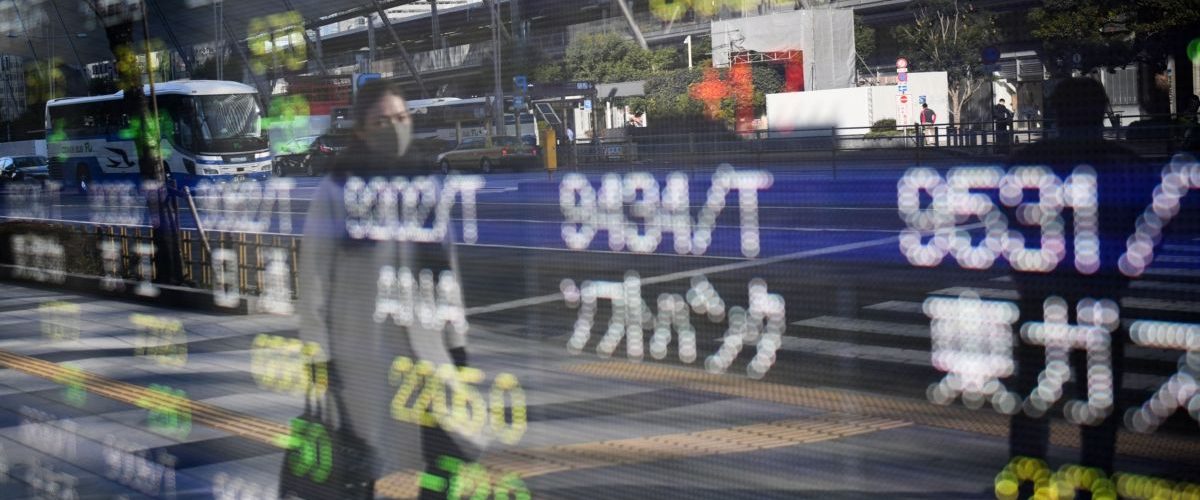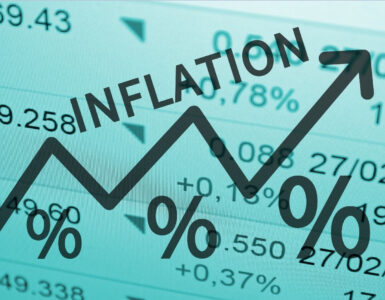Stock futures, bond yields and international equities fell on the possibility of an imminent war in Europe, after weekend diplomacy between Western leaders and Russian President Vladimir Putin failed to yield a breakthrough.
Futures for the S&P 500 slid 0.9% in volatile trading Monday. Contracts for the technology-focused Nasdaq-100 and the Dow Jones Industrial Average fell 1.1% and 0.8%, respectively. If the losses continue through the opening bell, they will compound a decline for stocks sparked Friday by U.S. warnings that Moscow could invade Ukraine at any moment.
Overseas stock markets also dropped, catching up with Wall Street’s late-week tumble. The Stoxx Europe 600 lost 2.8%, led lower by shares of banks and travel and leisure companies. Japan’s Nikkei 225 fell 2.2% and China’s Shanghai Composite Index fell 1%.
Oil prices edged down, after jumping in early trading on concern a war would curtail supplies of Russian crude to global markets that lack significant spare supplies. Brent, the benchmark in energy markets, fell 0.3% to $94.07 a barrel, holding near its highest level since 2014.
Prices for natural gas—of which Russia is the single biggest exporter globally—rose on both sides of the Atlantic. In the U.S., gas prices rose 4.5% to $4.12 per million British thermal units. Prices in Europe, which depends on Russia for much of its gas, a chunk of it flowing through Ukraine, jumped 8.8%.
Investors reached for assets they perceive to be havens at times of uncertainty. The yield on benchmark 10-year Treasury notes fell to 1.927% from 1.951% Friday, having reached a two-year high of 2.028% Thursday. Yields and bond prices move in the opposite direction. Gold futures rose 0.8% to $1,857.40 a troy ounce.
Stocks have been buffeted this year by the prospect of an increase in interest rates by the Federal Reserve. The central bank is gearing up
to raise borrowing costs to combat the highest rate of inflation in four decades, winding down the easy-money policies that have pushed riskier assets higher for much of the past two years.
The possibility of a ground war in Europe has loomed large as an additional source of uncertainty for investors in recent weeks. Moscow has denied intending to invade Ukraine, but Russia’s military buildup has quickened, with forces positioned on three sides of the country. They include some of Russia’s best-trained battalions and missiles that could strike targets throughout Ukraine.
The U.S. and its allies are withdrawing diplomatic staff from Kyiv in a sign Western capitals see diplomatic options narrowing. Companies are also taking precautions. Dutch airline KLM has stopped flying in Ukrainian airspace. Shares of Air France KLM, the Paris-listed holding company, dropped 6.8%.
Investors say the standoff over Ukraine is difficult to trade because they have no particular insight into the possibility of an invasion and the nature and severity of the West’s response. If Moscow were to attack and the U.S. and its allies responded with sanctions, the hostilities could affect the world economy and markets in unpredictable ways.
One likely consequence, given Russia’s position as a commodities superpower, would be higher energy prices, which could keep up the pressure on central banks to raise interest rates. At least in the short term, stocks and bond yields would likely decline as investors sought safe assets, investors say.
“We have the inflation story and then we have the Russian story,” said Lars Skovgaard Andersen, senior investment strategist at Danske Bank Wealth Management. In the event of an invasion, “there will be some negative effect on markets, but I also think investors are incorporating this,” he added.
Among individual U.S. stocks, cruise line Carnival lost 3.2% in premarket trading and chip company Nvidia lost 2.8%. Norwegian Cruise Line fell 2.5% and Tesla 2.3%. Charles Schwab is expected to report earnings before the market opens, followed by Avis Budget Group and Vornado Realty Trust after markets close.
Source: Wall Street Journal










